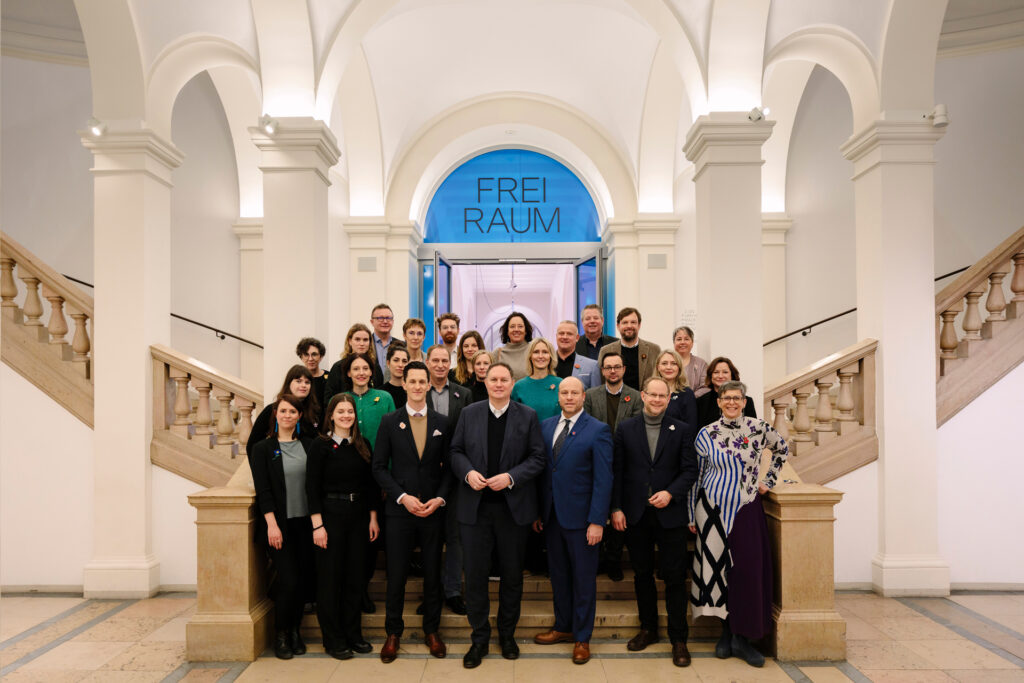Initiative 11 to 0 Climate neutrality in Hamburg museums
ELEVEN HAMBURG MUSEUMS ARE TAKING RESPONSIBILITY AND MAKING A CONCRETE CONTRIBUTION TO SOCIETY AS A WHOLE ON THE PATH TO CLIMATE NEUTRALITY.
Under the motto “Eleven to zero – Hamburg museums take action,” a pilot project unique in Germany was launched in the summer of 2022. “Eleven to zero” cooperates with the nationwide Action Network Sustainability in Culture and Media and is funded by the Hamburg Ministry of Culture and Media.
The joint initiative kicked off with a meeting of representatives from the houses to draw up CO2 balances for the participating houses together with experts as a basis for data. The goal of the collective project is to advance the sustainability transformation in the museums consistently and in the long term. The project is led by the Museum für Kunst und Gewerbe Hamburg (MK&G); the other participating houses are the Altonaer Museum, the Archaeological Museum Hamburg and Stadtmuseum Harburg, the Bucerius Kunst Forum, the Deichtorhallen Hamburg, the Deutsches Hafenmuseum, the Hamburger Kunsthalle, the Neuengamme Concentration Camp Memorial, the Museum am Rothenbaum – Kulturen und Künste der Welt (MARKK), the Museum der Arbeit and the Museum für Hamburgische Geschichte.
The first results were presented at the beginning of February 2023: The CO2 balancing of the eleven houses showed that the combined footprint amounts to 8,422.66 tons annually (reference year 2019). The majority of the emissions, 90.4%, result from the houses’ electricity and heat consumption. This is roughly equivalent to the climate impact of nine fully occupied wide-bodied aircraft flying from Hamburg to New York and back. In an extended balance, guest mobility was also taken into account, although this is partly based on estimated values. Including guest mobility, the carbon footprint of the eleven properties rises to just under 40,000 metric tons, or four and a half times as much. By including guest mobility in the balancing process, Eleven to Zero takes a pioneering role in the cultural sector. The balances now form a resilient data basis for strategic environmental management.
In addition, 17 transformation managers received a certificate of successful completion of their advanced training. They now have methodological and technical expertise for implementing sustainability strategies at their facilities.
What is the next step?
The work will take place in two strands: First, the houses will individually develop and implement control measures to reduce emissions. Secondly, the successful work in the Eleven to Zero community will be continued. The focus here is on knowledge transfer, capacity building and networking. Further training and information events, public offerings and publications, regular exchanges and excursions are planned. Additional funds are also to be raised for joint projects. This will strengthen and accelerate the transformation. To support the eleven houses in this program over the next two years, a network manager position will be created with the help of funding from the Department of Culture and Media.



